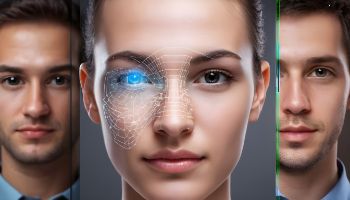benefits of nanotechnology in medicine studies
Introduction:
Nanotechnology involves manipulating materials at the nanoscale, enabling scientists to harness unique properties not observed at larger scales. When applied to medicine, it opens avenues for more effective treatments and diagnostics, and the exploration of nanomedicine is crucial in unlocking targeted therapies, enhancing drug delivery, and revolutionizing medical approaches. The benefits of nanotechnology in medicine studies are far-reaching, promising transformative changes in healthcare practices.

1-Understanding Nanomedicine and benefits of nanotechnology in medicine studies
-
Brief Overview of Nanomedicine
Nanomedicine encompasses the application of nanotechnology for medical purposes, ranging from diagnostic tools to drug delivery systems. Its precision and efficiency make it a focal point of research in the medical community.
-
Historical Background of Nanotechnology in Medicine
To grasp the present and future of nanomedicine, a glance at its historical roots is necessary. The evolution of nanotechnology in medicine has been a gradual but impactful journey.
-
Pioneers in Nanomedicine Research
The concept of nanomedicine didn’t materialize overnight. Visionaries and researchers have played pivotal roles in laying the foundation for this revolutionary approach to healthcare.
2-Who Created the Concept of Nanotechnology?
The concept of nanotechnology was introduced by physicist Richard Feynman in his famous 1959 lecture titled “There’s Plenty of Room at the Bottom.” In this groundbreaking lecture, Feynman envisioned the possibility of manipulating individual atoms and molecules to create new materials and devices. While Feynman planted the seed for the idea of nanotechnology, it was later popularized and developed further by scientists and researchers in the decades that followed, leading to the emergence of the field as we know it today.
3-Nanotechnology for Cancer Treatment
-
Targeted Drug Delivery Systems
One of the major benefits of nanotechnology in medicine studies is evident in cancer treatment. Nanoparticles facilitate targeted drug delivery, minimizing side effects and enhancing the efficacy of treatments.
-
Precision Medicine with Nanoparticles
Nanoparticles allow for personalized and precise medical interventions. In cancer cases, this translates to tailoring treatments based on individual patient characteristics, leading to more favorable outcomes.
-
Success Stories in Cancer Treatment
Numerous success stories highlight the positive impact of nanotechnology on cancer therapy. These stories underscore the potential of nanomedicine to redefine the landscape of cancer treatment.
4-Risks Associated with Nanotechnology
-
Nanotoxicity Concerns
While the benefits are immense, concerns about the potential toxicity of nanoparticles exist. Addressing these concerns is crucial to ensure the safety and ethical use of nanotechnology in medicine.
-
Ethical Considerations in Nanomedicine
The ethical dimensions of nanotechnology in medicine studies involve balancing innovation with responsibility. Questions surrounding patient consent, privacy, and the equitable distribution of benefits must be addressed.
-
Regulatory Measures in Place
To mitigate risks, regulatory frameworks are being established to govern the use of nanotechnology in medicine. Understanding and complying with these regulations is imperative for researchers and healthcare practitioners.
5-The Future of Nanotechnology
-
Advancements and Innovations
The future of nanotechnology in medicine promises continuous advancements and innovations. From enhanced diagnostics to novel treatment modalities, the trajectory is towards a more sophisticated and efficient healthcare system.
-
Potential Breakthroughs in Medicine and Dentistry
Beyond the known applications, nanotechnology holds the promise of breakthroughs in medicine and dentistry. From regenerative medicine to personalized dentistry, the potential applications are vast.
-
Integrating Nanotechnology into Healthcare
The seamless integration of nanotechnology into mainstream healthcare practices is on the horizon. Understanding the benefits and adapting to these changes will be pivotal for healthcare professionals and institutions.
6-Future Impact of Nanotechnology on Medicine and Dentistry
-
Nanoscale Applications in Dentistry
Dentistry is not immune to the impact of nanotechnology. Nanomaterials are poised to revolutionize dental treatments, from diagnostics to restorative procedures, promising more durable and aesthetically pleasing outcomes.
-
Transformative Technologies in Medicine
Nanotechnology is set to transform various medical technologies. From imaging techniques with enhanced resolution to innovative drug delivery systems, the future landscape of medicine is exciting and full of possibilities.
-
Shaping the Healthcare Landscape
The continued evolution of nanotechnology in medicine and dentistry is destined to shape the healthcare landscape. Embracing these changes will be essential for healthcare professionals, institutions, and patients alike.
7-Major Nanomaterials Use Cases in Medicine
-
Nanoparticles in Imaging
The utilization of nanoparticles in medical imaging is revolutionizing diagnostics. Enhanced resolution and specificity allow for early detection and accurate characterization of diseases.
-
Nanotubes for Drug Delivery
Nanotubes provide an efficient platform for drug delivery. Their unique properties enable targeted release, reducing side effects and improving the overall effectiveness of therapeutic interventions.
-
Nanocomposites in Tissue Engineering
In the realm of tissue engineering, nanocomposites offer novel solutions for regenerative medicine. Customizable materials at the nanoscale provide unprecedented control over tissue development and repair.
Conclusion:
In conclusion, the benefits of nanotechnology in medicine studies are vast and transformative. From cancer treatment to personalized medicine, nanotechnology offers innovative solutions that have the potential to redefine healthcare. As researchers continue to explore and unlock the full capabilities of nanotechnology, we can expect further breakthroughs that will shape the future of medicine.







[…] technology used for face recognition […]
[…] the rapidly evolving landscape of modern technology, understanding the difference between artificial intelligence and virtual reality is paramount. […]
[…] Acquiring a certification in a specific technology (e.g., Cisco CCNA, AWS Certified Solutions […]